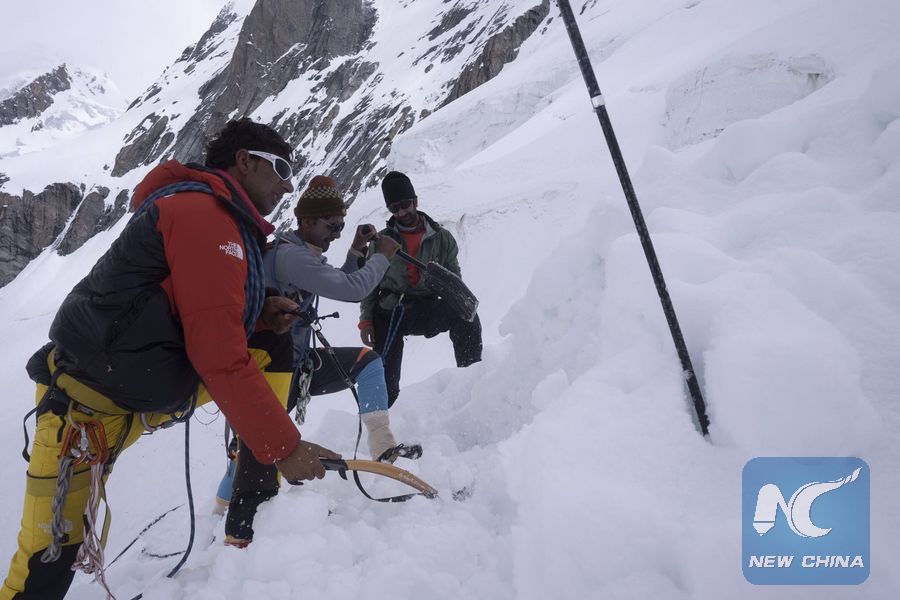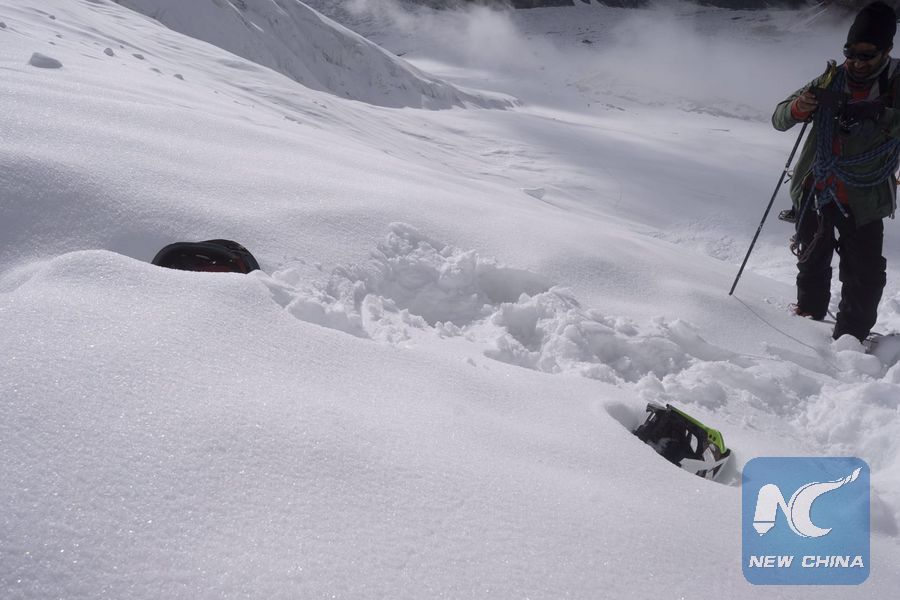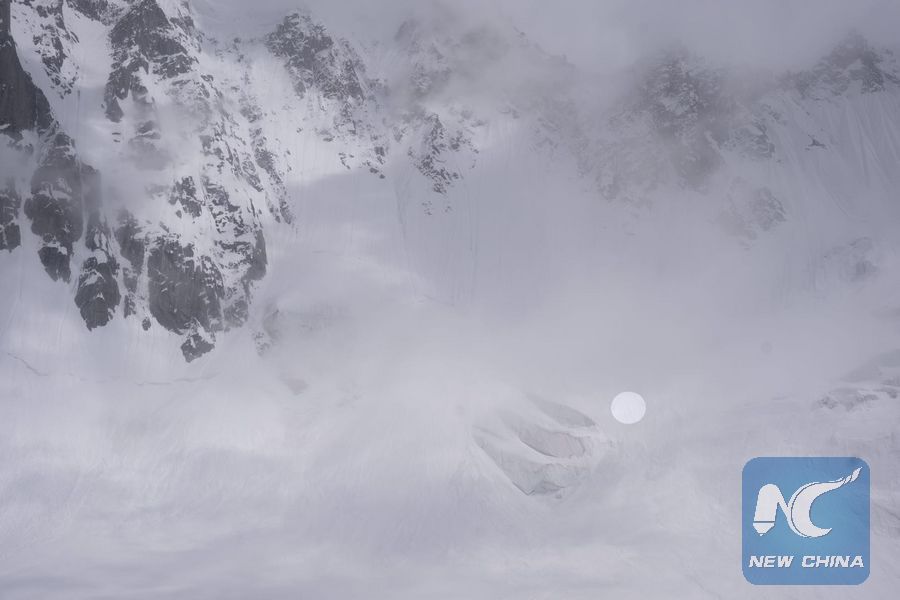
The rescue team searches for the bodies of the two Chinese climbers on Liligo Glacier, Pakistan on June 23, 2019. (photo by the surviving climber)
By sportswriter Wang Qin'ou, Misbah Saba Malik
BEIJING, June 27 (Xinhua) -- Efforts are being made to recover the bodies of two Chinese climbers, who are presumed dead after being hit by an avalanche while trying to scale a peak on Liligo Glacier in the Hunza area of Pakistan's north Gilgit Baltistan region, multiple sources told Xinhua in recent interviews.
The two climbers are from Chengdu and Hong Kong. Their teammate, who survived the tragedy as he was at base camp while his colleagues where hit by the avalanche, confirmed that the pair's last contact with base camp was on June 15.
All three climbers pursue alpine climbing, a branch of climbing in which climbers use the very primary aid to get to the peak. The climber from Chengdu was also a mountaineering photographer, who had received an award at the Nanshan International Mountain Film Festival. He had planned to film the expedition in Pakistan in order to shed more light on the Karakoram area to Chinese climbers.

The rescue team discovers two broken helmets on Liligo Glacier, Pakistan on June 22, 2019. (photo by the surviving climber)
According to the surviving climber, his teammates set out from base camp on June 14 and had planned to return the following day. After nearly two days of silence, he called the Pakistani military for help on June 17.
Meanwhile, one of the victims' friend, A Zuo, a Chinese alpine climber who had been following the expedition from China, contacted the Chinese Embassy in Pakistan, after which local military launched three helicopter rescue missions. The rescue team found sleeping bags and personal items belonging to the missing pair at an avalanche track, and assumed the climbers' bodies were inside the sleeping bags.
The rescuers headed back to the site at 5,300 meters altitude on June 22 to recover the bodies, only to find the area had been hit by another avalanche. Sources from the Pakistani military told Xinhua that they were waiting for the weather to improve before starting a fresh salvage operation.

The rescue team arrives at the site of the body of the two climbers, only to find them covered again by another avalanche on Liligo Glacier, Pakistan on June 22, 2019. (photo by the surviving climber)
A group of Chinese volunteers, A Zuo included, have arrived in Pakistan with the consent of one of the climbers' families. A fundraising event is also being launched in China to help cover the costs incurred by the use of military helicopters.
Ishaq Ali, the local tour operator, told Xinhua that Pakistan's northern areas are emerging travel destinations for adventure lovers from China, who enjoy visiting the country for mountain climbing, trekking, and cycling. Before 2015, the number of Chinese visiting the country for adventure tourism was negligible, he added.
According to A Zuo and the surviving climber, the Karakoram area saw more snow this year than in previous years, which may be the cause of the increasing frequency of avalanches this year. Local sources confirmed that the military helicopters also rescued an Italian team which had been hit by an avalanche on June 18. (Note: The climbers' names were omitted at the request of their families)

